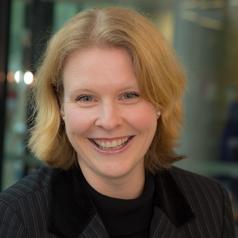
Bianca Klettke
Senior Lecturer in Psychology, Deakin University
PhD in Experimental Psychology, The University of Memphis, May 1, 2004.
Master of Arts in Criminology & Criminal Justice, The University of Memphis, May 4, 2001,
Master of Science in Psychology, The University of Memphis, December 16, 2000.
Bachelor's of Arts in Psychology (with Interdisciplinary Liberal Arts Honours), Magna Cum Laude, The University of Memphis, May 9, 1997.
Graduate Certificate of Higher Education, Deakin University, January 2008.
Less ![]()
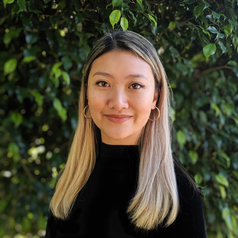
Bianca Le
Honorary Fellow, The University of Melbourne
Bianca is a cell biologist and Honorary Fellow in Agriculture and Food at the University of Melbourne. Her PhD thesis explored the long-term effects of preterm birth on heart development.
She is currently the Executive Director of Cellular Agriculture Australia, a nonprofit organisation with the mission to build a new research field and industry for sustainable food production in Australia. Bianca was also one of 60 Australians selected for the Superstars of STEM 21-22 program.
Less ![]()

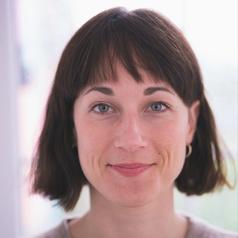
Bianca Shuster
Postdoctoral Reseracher in cognitive Neuroscience and Psychology, Universität Wien
Less ![]()
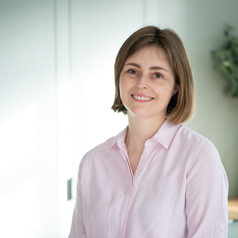
Bianca Tod
Dermatologist and senior lecturer, Stellenbosch University
MBBCh (Wits)
MMed (Derm) (Stell)
FCDerm (SA)
PhD candidate (Stell)
Less ![]()
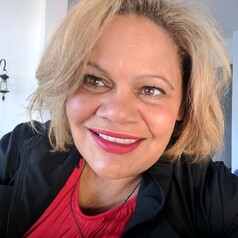
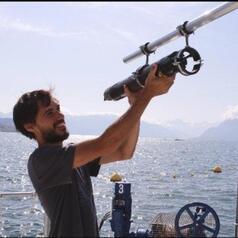
Bieito Fernandez Castro
Lecturer in Physical Oceanography, University of Southampton
I do interdisciplinary oceanographic and limnological research, connecting small-scale physical processes with ocean circulation, biogeochemical cycles and plankton dynamics. In my current project, I investigate how ventilation processes in the mixed layers of the Southern Ocean modulate the uptake of atmospheric CO2 in this climatically important region.
Less ![]()

Biftu Yousuf
Research Associate, Refugee Centre, L’Université d’Ottawa/University of Ottawa
Less ![]()
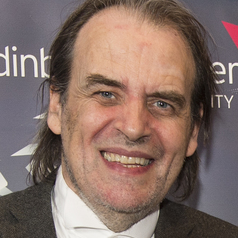
Bill Buchanan
Bill Buchanan is a Professor in the School of Computing at Edinburgh Napier University, and a Fellow of the BCS and the IET.
He currently leads the Centre for Distributed Computing, Networks, and Security and The Cyber Academy, and works in the areas of security, Cloud Security, Web-based infrastructures, e-Crime, cryptography, triage, intrusion detection systems, digital forensics, mobile computing, agent-based systems, and security risk.
Bill has one of the most extensive academic sites in the World, and is involved in many areas of novel research and teaching in computing. He has published over 27 academic books, and over 200 academic research papers, along with several awards for excellence in knowledge transfer, and for teaching, such as winning at the I ♥ my Tutor Awards (Student voted), Edinburgh Napier University, 2011, 2014 and 2015, and has supervised many award winning student projects.
He was named as one of the Top 100 people for Technology in Scotland for 2012, 2013, 2014 and 2015. In Feb 2016, he was also included in the FutureScot "Top 50 Scottish Tech People Who Are Changing The World".
He has been an external examiner at many universities, and is currently an external examiner at Royal Holloway (University of London). Also with this he has been involved in many PhD completions and many external PhD examinations (including recent ones in Newcastle, Liverpool, and Dublin). He is part of many editorial boards for conferences and reviews in a wide range of journals.
Bill regularly appears on TV and radio related to computer, and has given evidence to the Justice Committee at the Scottish Parliament, along with being part of the BBC Scottish Independence Team of Experts (specialty: Cyber Security). This includes appearances on Newsnight Scotland, Good Morning Scotland, and Radio 5 Newsdrive, and was named as one of the Top 100 people for Technology in Scotland for the last two years. Along with this he gives many keynote/endnote talks at conferences, including at NISC 2014 on Heartbleed.
He has led many innovations in teaching related to Cyber Security, including with the DFET Cloud Training project and leads the Scottish EU Centre of Excellence for Law Enforcement Training within the 2Center Network, along with being part of the setup of SIPR (Scottish Institute for Police Research). He currently leads on a range of training projects with Police Scotland and a range of industry partners.
Presently he is working with a range of industrial/domain partners, including with the Scottish Police, the finance sector, and many large and small companies. He has a long track record in commercialisation activities, including being a co-founder of Zonefox and safi.re, which of which progressed from PhD work to a university spin-out, though the Scottish Enterprise funded Proof-of-Concept scheme. Over the past three years he has received direct funding of over £2million related to computer security, which has had a major impact on an international basis. Both spin-outs build on patented technology, including one which has patenting protection over three territories around the World.
His current work includes a €500,000 project which aims to build an advanced training infrastructure for Cyber Security and Digital Forensics. Previous projects have included collaboration of TSB Grants with Microsoft plc on a £2million project which aimed to improve the care of the elderly using Trusted Cloud-based services, and with Chelsea and Westminster Hospital on a next generation Health Care platform. This also matches up with other funded projects with the FSA and the Scottish Police.
He has created many innovations in teaching related to computer security, including being sole author on http://networksims.com (Cisco Simulators), and http://asecuritysite.com (one of the most extensive computer security site for academic material in the World) and in creating DFET (an innovative Cloud training infrastructure for security and digital forensics training). His lectures are online at http://youtube.com/billatnapier, with over 500 on-line lectures, and has over 1,500 subscribers, with more than 1million minutes watched. He regularly appears on the BBC radio and TV talking about Cybercrime (see http://youtube.com/billatnapier).
Bill is also a member of the ICT in Education Excellence Group, which has been setup by the Scottish Government in 2012, and innovated the Christmas Cyber lecture for Schools in Scotland (attended by over 3,000 pupils in Dec 2013). He has done extensive work with Schools in promoting ICT, especially focused on computer security, and created the Bright Red Digital Zone, which now includes most of the subjects with the N5 (CfE) subjects in Scotland (brightredbooks.net), and which has extensive coverage of areas such as computer security.
Less ![]()
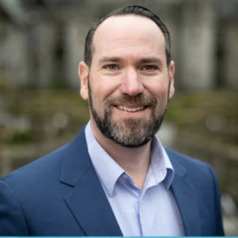
Bill Danielsen
Doctoral Candidate, Business Administration, Royal Roads University
Bill is an experienced senior executive who holds a bachelor of Arts from the University of Victoria, a Master of Business Administration from Royal Roads University, and is a current Doctoral Candidate at Royal Roads in the Doctor of Administration program.
Less ![]()
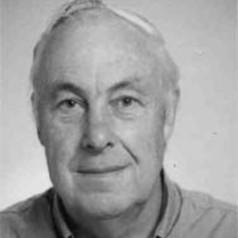
Bill Gammage
Emeritus Professor, Humanities Research Centre, Australian National University
Bill Gammage is an Emeritus Professor at the Humanities Research Centre, studying Aboriginal land management at the time of contact. He grew up in Wagga Wagga and went to Wagga High School, then to the Australian National University (ANU).
He taught history at the University of Papua New Guinea (1966, 1972-6), the University of Adelaide (1977-96), and the ANU (1997-2003). He wrote The Broken Years. Australian Soldiers in the Great War (1974+), An Australian in the First World War (1976), Narrandera Shire (1986) which won the ABC/ABA Manning Clark Bicentennial History Award in 1988, and The Sky Travellers.
Journeys in New Guinea 1938-39 (1998), which won the inaugural Queensland Premier's Prize for Non-Fiction in 1999, and that year was short-listed for the NSW Premier's History Prize.
In 2011, he published The Biggest Estate on Earth: How Aborigines made Australia.
He co-edited the Australians 1938 volume of the Bicentennial History of Australia (1988), and three books about Australian soldiers in World War One. He was historical adviser to Peter Weir's film Gallipoli and to about ten documentaries. He served the National Museum of Australia for three years as Council member, deputy chair, and acting chair. He was made a Freeman of the Shire of Narrandera in 1987. He and his wife Jan have many friends.
Less ![]()

Bill Hardwig
Associate Professor of English, University of Tennessee
Bill Hardwig is currently working on a book project tentatively called "How Cormac Works," focusing on the fiction of Cormac McCarthy and narrative style.
His "Upon Provincialism: Southern Literature and National Periodical Culture, 1870-1900" (University of Virginia Press, 2013) explores the late-19th century fascination with fiction about the American South. Drawing on travel writing and the often-misunderstood local color movement, this book tracks how the nation’s leading interdisciplinary periodicals, especially the Atlantic Monthly, Harper’s, The Century, translated and broadcast the predominant narratives about the post-war and post-reconstruction South. He has co-edited with Susanna Ashton "Approaches to Teaching the Work of Charles W. Chesnutt" (MLA Publications 2017), winner of Sylvia Lyons Render Award. He has also edited scholarly editions of the autobiography "Background in Tennessee "(University of Tennessee Press, 2021), written by Evelyn Scott, and a collection of stories about the Appalachian Mountains, "In the Tennessee Mountains" (University of Tennessee Press, 2009), written by Mary Noailles Murfree, which was first published in 1884.
Professor Hardwig teaches courses on American literature, focusing on Southern, African American, and Appalachian literature of the 19th and 20th century. Course topics include the literature of Cormac McCarthy (ENG 482), immigration in American Literature (ENGL 331), race and science in American literature (ENG 398), Southern literary regionalism (ENG 551), and recurring sections of Southern (ENG 441) and Appalachian (ENG 444 and 661) literature and culture. Professor Hardwig designed and runs the website Literary Knox, which provides information, walking tours, and virtual tours that explore Knoxville’s literary history.
Professor Hardwig has held the Department of English’s Carroll Distinguished Teaching Professorship, has received the College of Arts and Sciences Excellence in Teaching award for Junior Faculty and the John C. Hodges Excellence in Teaching award, has three times received awards for teaching/mentoring from UT’s English graduate students, and has won university and regional advising awards.
Less ![]()
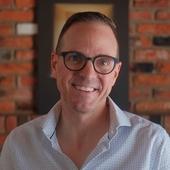
Bill Hodgetts
Audiology Professor, Dept of Communication Sciences and Disorders, Faculty of Rehabilitation Medicine., University of Alberta
Less ![]()
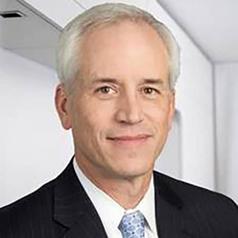
Bill Hughes
Research Director, Kelley A. Bergstrom Real Estate Center, University of Florida
Bill Hughes is Executive Director of Applied Research at the Bergstrom Real Estate Center at the University of Florida's Warrington College of Business. He leads the center's effort to delivering data-driven reports for the real estate community. Most recently, Hughes served for 15 years as Global Head of Real Estate Research and Strategy at UBS. He received his bachelor’s degree in industrial engineering from Georgia Tech and his MBA and Ph.D. in real estate from the University of Georgia.
Less ![]()
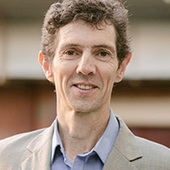
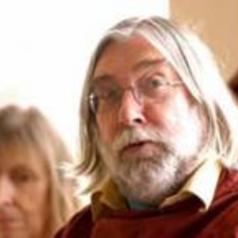
Bill Tupman
My research is on transnational crime, terrorism and the process of creating a supranational police response to these phenomena.
I am a member of the executive committee of the Standing Group on Organised Crime of the ECPR and run the SGOC blog at:
http://sgoc.blogspot.com/
Research Interests
The appropriateness of supranational policing arrangements as a response to changing structures of organised crime including terrorism. Particularly interested in relationships between Eastern and Western Europe with regard to crime, the Schengen acquis and Justice and Home Affairs matters in the European Union.
Less ![]()
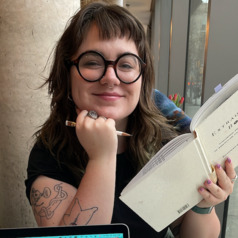
Billie Anderson
Ph.D. Candidate, Media Studies, Western University
Billie is a Ph.D. Candidate in Media Studies in the Faculty of Information and Media Studies. Her research interests lie primarily in the interconnection between narratives of disability and Hollywood cinema, focusing specifically on the prevalence of disabled aesthetics, tropes, and individual characteristics in Hollywood top-box office films.
With academic grounding in semiotics, film and critical theory, and disability studies, her other interests include the aesthetics of horror, stand-up and sitcom comedy (particularly of “punching up/punching down” humour), the intersection of race, gender, and disability, and mimetics.
Billie grew up in Regina, Saskatchewan and is now living in Toronto. She holds a BA from Western University and King’s University College (Disability Studies and Psychology), and an MA from York University (Critical Disability Studies).
Less ![]()
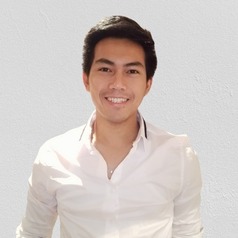
Billy Nathan Setiawan
PhD Candidate in Applied Linguistics, University of South Australia
Billy Nathan Setiawan is currently undertaking a PhD study in Applied Linguistics at University of South Australia, through the Australian Government Research Training Program (RTP) scholarship. His PhD study focuses on intercultural language teaching and learning. Billy has also been a language teacher since 2009. His teaching experience includes teaching Indonesian language at University of Wisconsin USA (through a Fulbright fellowship programme) and teaching English for Academic and Specific Purposes at various universities in Indonesia. His main research interests are intercultural language teaching and learning, English language education, intercultural communication and English language variations.
Less ![]()
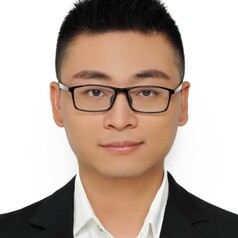
Bin Chen
Postdoctoral Research Associate in Environmental Engineering, Fudan University
Chen Bin is an environmental system engineer and life-cycle analyst.
His research focuses on multi-scale environmental system modelling, sustainable circular bio-based economy, environmental risk modelling and climate change adaption.
Less ![]()
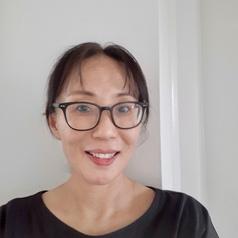
Bin Wu
Lecturer in Education, Swinburne University of Technology
Bin Wu is lecturer in the Department of Education at Swinburne University of Technology. Her research disciplines include sociology of education, educational history and philosophy. Her recent research has focused on Chinese history, philosophy and contemporary education, the experiences of Chinese women and migration. Overall her preoccupation is with diversity and social justice, the way that ideas, past and current, affect the lives people live.
Less ![]()

Bindiya Dutt
Doctoral Candidate, Media and Communication, University of Stavanger
Doctoral Candidate in Media and Communication at the University of Stavanger.
Less ![]()

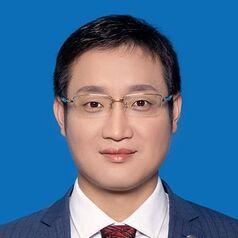
Bingan Lu
Associate Professor of Physics and Electronics, Hunan University
Bingan Lu received his bachelor and doctoral degree from Lanzhou University, China in 2008 and 2012, respectively, while serving as a visiting scholar at Stanford University from 2014 to 2015. His research focuses on designing novel energy storage materials and devices with a low cost and a long life, including Li/K/Al ion batteries. He has published over 260 papers in many prestigious journals, including Nature, Nature Sustainability, Nature Communications, Advanced Materials and National Science Review.
Less ![]()
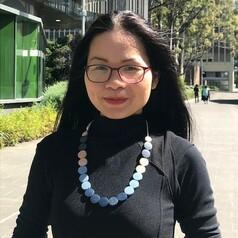
Binh Ta
Lecturer, Monash University
Binh Thanh Ta is a lecturer at the Faculty of Medicine Nursing and Health Science, Monash University, Australia. She is interested in studying social interactions in higher education and medical care contexts.
Less ![]()
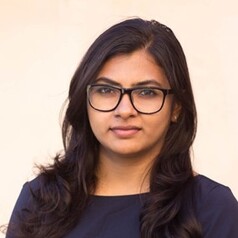
Binita Mahato
Assistant Professor of Community Planning, Auburn University
Binita Mahato is an assistant professor in Auburn University’s Community Planning Program. She has a Ph.D. in urban and regional planning, a master’s degree in community planning from the School of Planning, University of Cincinnati, and a bachelor’s degree in architecture from the Indian Institute of Engineering Science and Technology (IIEST), India.
Mahato has worked as an architect for two years and has work experience with the Cincinnati Area Geographic Information System (CAGIS), Niehoff Urban Studio, and the Institute of Policy Research at the University of Cincinnati. She has been a research fellow for the Communication in Urban Environments (CUE) research initiative by the Fruth and Gemini Foundation, University of Cincinnati. Alongside, she has worked as an editorial assistant for the Journal of Children, Youth, and Environment and has taught urban planning and urban design studios at the School of Planning, University of Cincinnati.
Mahato’s research interest lies in investigating the relationship between space and society using qualitative and interpretive research methods. Her dissertation focuses on the manifestation of social class relations over the use of public spaces in Kolkata, India. She has also worked on several other research projects on measuring the robustness of neighborhood business districts and the diversity of urban parks in Cincinnati. She has urban design and GIS certificates and likes to use her design and GIS skills to illustrate complex urban phenomena through communicative visuals.
Less ![]()
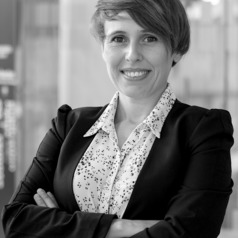
Birau Mia
Associate Professor of Marketing, EM Lyon Business School
Professeur associé de marketing à emlyon business school. Les recherches portent sur l'utilisation d'outils marketing pour améliorer le bien-être des consommateurs, notamment en matière d'alimentation saine et de réduction du gaspillage alimentaire. L'un de ses travaux publiés lui a valu le prestigieux prix Thomas C. Kinnear pour la contribution durable dans les domaines du marketing et de la politique publique. Expertise dans le comportement des consommateurs, le marketing et les études marketing.
Less ![]()
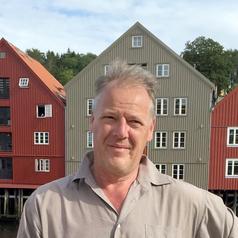
Birger Rasmussen
Adjunct Professor, The University of Western Australia
I have undergraduate (BSc, Hons) and postgraduate (PhD) degrees from the University of Western Australia (UWA), Perth, Australia. I worked as a Development Geologist with WAPET before returning to UWA, where I was awarded: i) an ARC Australian Postdoctoral Fellowship (1997-1999) for research on tracing ancient oil migration; ii) an ARC Queen Elizabeth II Fellowship (2000-2005) on the application of phosphate minerals to date major environmental and biological events in the early rock record, and; iii) an ARC Australian Professorial Fellowship (2011-2016) to investigate the early history of atmospheric oxygen and the Great Oxidation Event. This work has focussed on tracing the composition of the early hydrosphere and atmosphere through time, and the antiquity and evolution of early life. In 2006, a major research program was initiated, funded by the ARC and industry (BHP, Rio Tinto), on the transformation of banded iron formations to iron ore. Current research is centred on understanding: i) how iron formations were deposited and what they tell us about ancient ocean chemistry; ii) the early history of phosphorus and the co-evolution of life; iii) Precambrian carbon and the origin of ancient fossils; iv) the tectonic and mineralization history of Precambrian cratons and orogenic belts, and; v) the potential role of mineral templates in the development of the first living cells.
Less ![]()
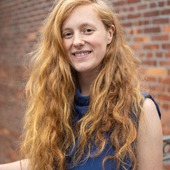
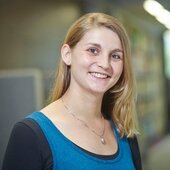
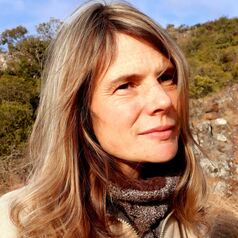
Birthe (Bibi) Linden
Postdoctoral Researcher (University of Venda) & Associated Researcher (Lajuma Research Centre), University of Venda
Less ![]()
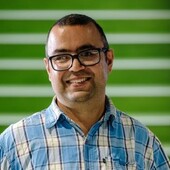
Bishal Bharadwaj
Adjunct Research Fellow, Curtin Institute for Energy Transition, Curtin University
Less ![]()
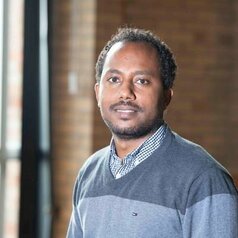
Bizuneh Yimenu
Teaching Fellow, University of Birmingham
Dr Bizuneh Yimenu is a teaching fellow at the School of Government of Birmingham University. He earned his PhD in comparative politics from the University of Kent. His PhD project entitled ‘Implementing Federalism in a Developing Country: The Case of Ethiopia, 1995-2020’ won the Civil Society Scholars Award of the Open Society Foundation. Bizuneh worked as an assistant lecturer and subject tutor from 2017 to 2022 at the University of Kent. Before joining Kent, he completed an MA and BA at Addis Ababa University, Ethiopia. He also worked as a lecturer at Dilla University, Ambo University, and Ethiopian Civil Service University in Ethiopia between 2008 and 2017. Bizuneh is a teaching fellow of the Higher Education academy.
His research focuses on federalism, decentralisation, public policy, nationalism, territorial politics, and Africa. His research articles have been published in international journals such as Publius: The Journal of Federalism and Asian and African Studies. He published pieces on platforms such as Africanargument and Ethiopia Insight. He appears on international media such as Aljazeera to give expert comments regarding federalism and Ethiopia.
Less ![]()
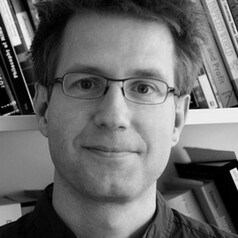
Björn Meder
Professor of Psychology, Health and Medical University
I’m a cognitive and behavioral scientist with a background in psychology. My research investigates the computational and behavioral principles that support human learning, search, and decision making. I am particularly interested in how humans actively search for information or rewards, how they make causal inferences based on limited and noisy data, and the cognitive foundations of judgment and decision making. I like computational models of cognition, which I develop and test by running behavioral studies that span across a wide range of age groups. My work also provides several connections to applied research, for instance regarding the use of behavioral insights in policy making and how people understand and evaluate medical risks.
I’m a professor of cognitive and experimental psychology (Allgemeine Psychologie) at the Health and Medical University in Potsdam. In addition, I’m affiliated with the Max Planck Research Group iSearch at the Max Planck Institute for Human Development and the Center for Empirical Research in Economics and Behavioral Sciences (CEREB) at the University of Erfurt.
Less ![]()
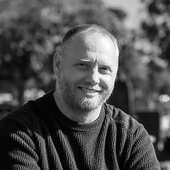
Bjorn Nansen
Associate Professor, School of Computing and Information Systems, The University of Melbourne
Less ![]()
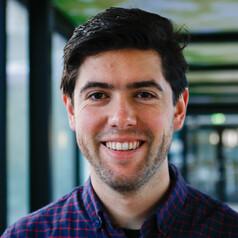
- Market Data





















